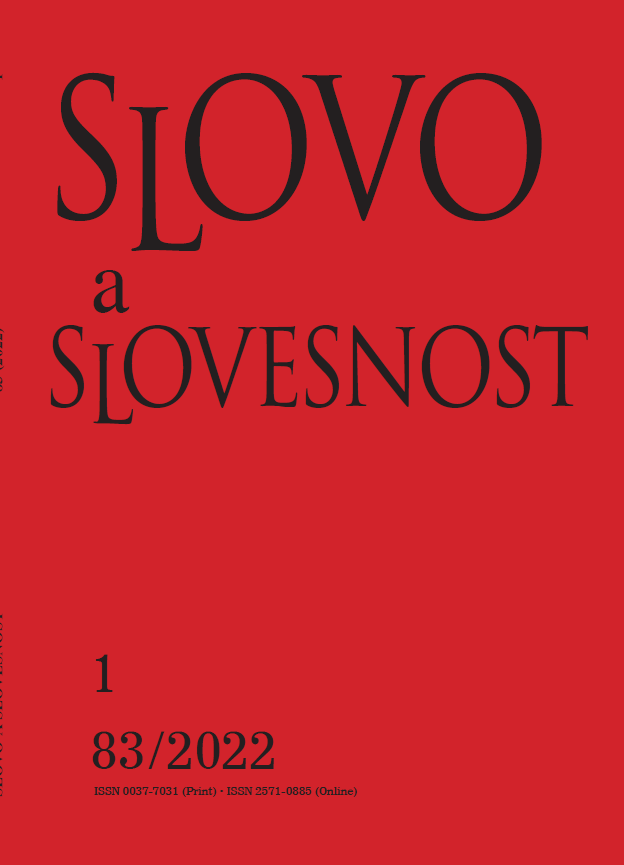Pseudoanglicismy: české neologismy z anglických slov
Pseudoanglicisms: Czech neologisms based on English words
Author(s): Ivana Bozděchová, Aleš KlégrSubject(s): Lexis, Western Slavic Languages
Published by: AV ČR - Akademie věd České republiky - Ústav pro jazyk český
Keywords: borrowing; Czech; anglicism; pseudoanglicism; adaptation; neologization
Summary/Abstract: The paper introduces the concept of pseudoanglicism to Czech lexical studies. It sketches its history and use in the literature. It outlines the standard account of foreign word adaptation in Czech to bring out the distinction between adaptation and neologization. The adopted approach develops Duckworth’s (1977) broad definition of pseudoanglicisms. Whether including only English elements (baby-box, basket) or both English and Czech ones (hokejista, soráč, onlinovka, etc.), the pseudoanglicism is a neologism rather than a simple loanword: a lexeme with a new form and a meaning of its own and no formal counterpart in English. Another possibility is that a lexeme (largely) retains its English form but acquires a different meaning in Czech (sprayer, mixér). In any case what separates English-based neologisms from adapted loanwords is their meaning peculiar to Czech. The different types of Czech pseudoanglicisms are illustrated using a sample of 516 items. The paper argues for the desirability to differentiate between anglicisms and pseudoanglicisms. The latter transcend linguistic borrowing, bearing witness to the active role of Czech speakers who employ English elements to produce Czech neologisms.
Journal: Slovo a slovesnost
- Issue Year: 83/2022
- Issue No: 1
- Page Range: 3-27
- Page Count: 25
- Language: Czech

